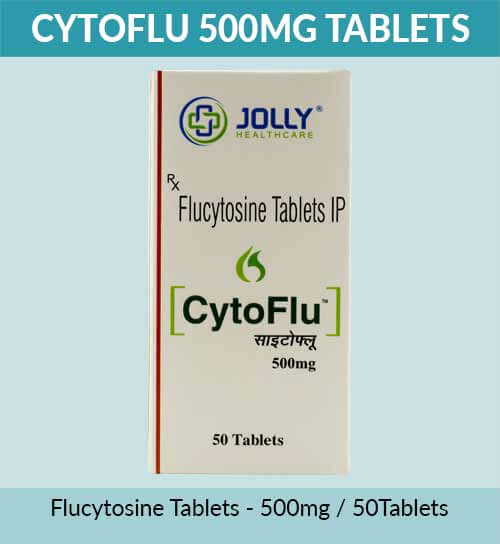Flucytosine
Flucytosine is an antifungal medication used in the treatment of certain fungal infections, particularly those caused by Candida and Cryptococcus species. It belongs to a class of drugs known as antimetabolites.
Flucytosine works by inhibiting the synthesis of DNA and RNA in fungal cells, disrupting their ability to grow and multiply. It is often used in combination with other antifungal agents to enhance its effectiveness.
The medication is typically taken orally in the form of capsules. The dosage and treatment duration depend on the specific fungal infection being treated, as well as the individual’s overall health.
Common side effects of flucytosine may include gastrointestinal upset, bone marrow suppression (which can lead to decreased blood cell counts), and liver toxicity. More serious side effects, such as allergic reactions or kidney damage, can occur but are less common. Regular monitoring of blood cell counts and liver function may be recommended during treatment.
Flucytosine should only be used under the guidance and prescription of a qualified healthcare professional experienced in the treatment of fungal infections. It may interact with other medications, so it is important to inform the healthcare provider about all medications being taken, including over-the-counter drugs and supplements.
In summary, flucytosine is an antifungal medication used to treat certain fungal infections. It inhibits DNA and RNA synthesis in fungal cells to impede their growth. Regular monitoring and adherence to healthcare provider instructions are important during flucytosine treatment.
Note – The brand names and product descriptions used on this site are for informational purposes only and are the property of their respective owners.

